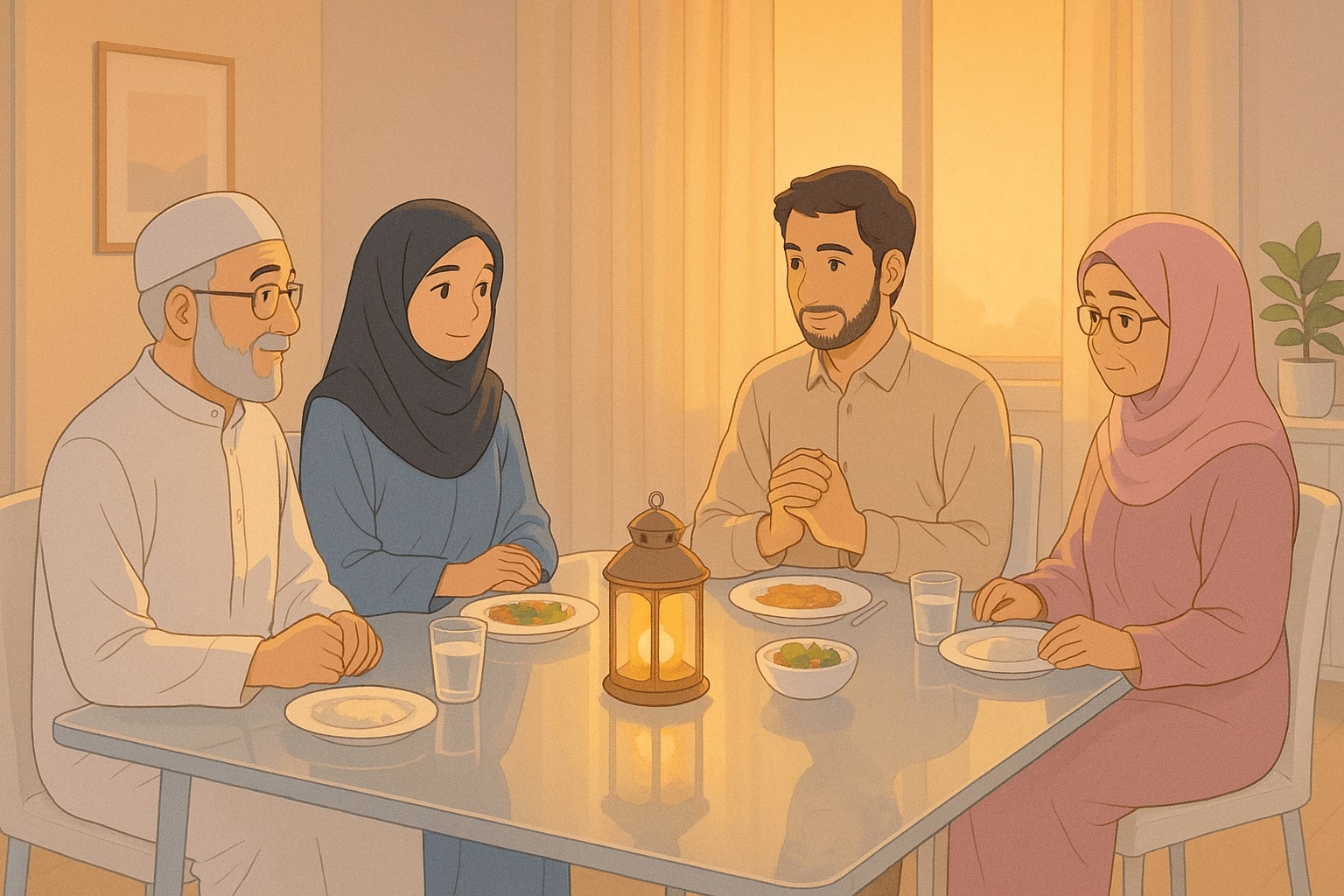Assalamu alaikum dear brothers and sisters ✨,
Living with in-laws can bring immense barakah — but also real tests of patience and understanding.
Every family has its own dynamics, and sometimes the home that unites two hearts also combines two generations, expectations, and ways of life.
Islam, in its wisdom, provides balanced guidance for such situations. It teaches adab (manners), sets clear boundaries, and emphasises justice and kindness — so that the home remains a place of peace, not tension.
The key to harmony lies in knowing the rights, responsibilities, and boundaries Allah ﷻ has set.
The Right to Independent Space
In Islam, a wife has the right to a private living space — one that gives her comfort, safety, and dignity.
It is the husband’s duty to provide this within his means, even if modest.
“Lodge them [in a section] of where you dwell out of your means.”
[65:6]
This verse establishes that a husband must ensure his wife has her own space — not necessarily far from his parents, but with privacy to live and breathe as a couple.
Having separate quarters or even clear boundaries within a shared home prevents unnecessary conflict. It allows the couple to build their bond without pressure, interference, or comparison.
A peaceful marriage needs both love and space to grow.
Boundaries Protect the Family
Islamic boundaries are not barriers — they are safeguards.
When everyone understands their role and limit, respect naturally follows.
The Prophet ﷺ said:
“Beware of entering upon women.” They said, “O Messenger of Allah, what about the brother-in-law?” He said, “The brother-in-law is death.”
[Sahih al-Bukhari, Sahih Muslim]
This hadith may sound strong, but it is protective. It warns against casual or unrestricted interaction between non-mahrams — even within family homes — to prevent fitnah and misunderstandings.
Establishing boundaries doesn’t mean coldness or separation. It means maintaining modesty, privacy, and respect in every interaction.
When a family honours Islamic etiquette, everyone feels secure — parents, children, and spouses alike.
The Husband’s Responsibility
The husband stands at the centre of this balance. He is the bridge between his parents and his wife — tasked with maintaining fairness, compassion, and justice toward both.
“And live with them in kindness.”
[4:19]
A righteous husband doesn’t take sides. He mediates with wisdom.
He listens to his wife’s concerns with empathy and ensures she feels respected.
He honours his parents with care, but does not allow injustice or disrespect toward his spouse.
True qiwāmah (leadership) means leading with justice, not authority.
The Wife’s Role of Wisdom and Kindness
A believing woman understands that patience and gentleness can soften even the hardest situations.
If she lives with her in-laws, her kindness can become a source of barakah for the entire household.
“The best of you are those who are best to their families.”
[Jami’ at-Tirmidhi 3895]
She shows ihsan (excellence) in manners, avoids gossip or arguments, and remembers that her behaviour can either ease or escalate tension.
However, kindness does not mean silence in the face of unfairness. Islam allows her to express her needs — but with respect and balance.
The Prophet ﷺ was the best example of gentleness at home; his conduct shows that strength and softness can coexist beautifully.
When Conflict Arises
Even in the best families, misunderstandings happen.
The key is not to let small issues grow into resentment.
If disagreements arise, speak calmly — not in anger, not through blame, but with a genuine desire to restore peace.
The couple should work as a team:
- Privately discuss issues rather than airing them before parents.
- Set boundaries together and agree on what’s best for their household.
- Seek advice from trusted scholars or elders when needed — not social media or gossip circles.
Remember that silence in anger or distance in communication can destroy years of goodwill.
Open, kind communication builds trust.
When Living Apart Is Healthier
In some cases, constant tension makes living together harmful to the marriage. If both spouses have tried patience, kindness, and communication — yet the situation remains toxic — Islam allows separation of households for the sake of peace.
It’s not a sign of rebellion or disrespect; it’s often the healthiest choice for all involved. Parents deserve honour. Spouses deserve peace. Both can coexist — through fairness and maturity.
“And Allah does not intend to make difficulty for you.”
[5:6]
Sometimes, creating space is an act of mercy — not disobedience.
Final Reflection
Islam doesn’t demand that couples live with in-laws — nor does it forbid it. What matters most is how everyone behaves within the home: with adab, justice, and sabr.
When families remember that kindness is ibadah, that fairness is a form of taqwa, and that peace begins with patience — homes transform.
No arrangement is perfect, but hearts guided by the Qur’an and Sunnah can make any home a place of sakīnah (tranquility).
May Allah ﷻ bless every family with understanding, mutual respect, and the ability to build homes rooted in love, not tension.



